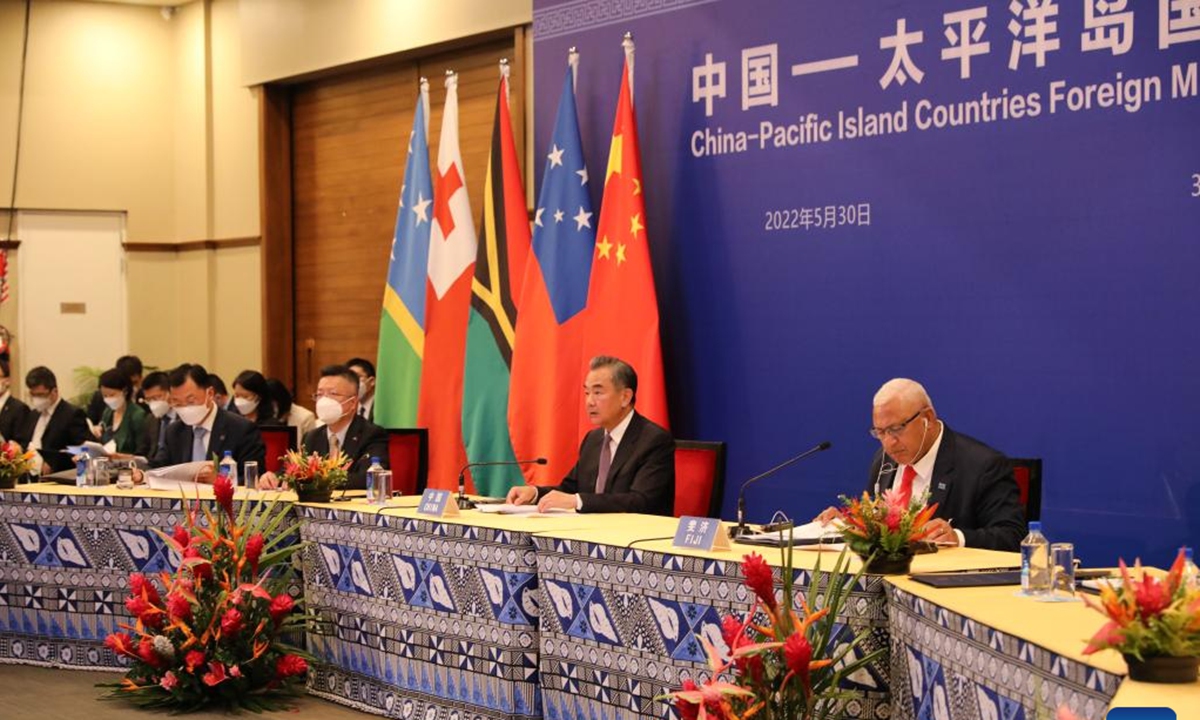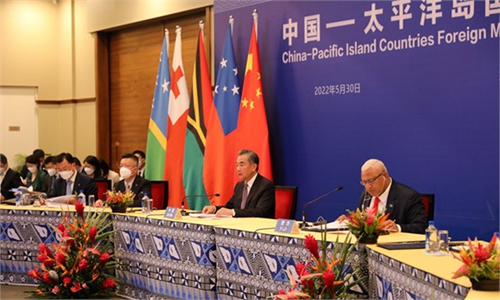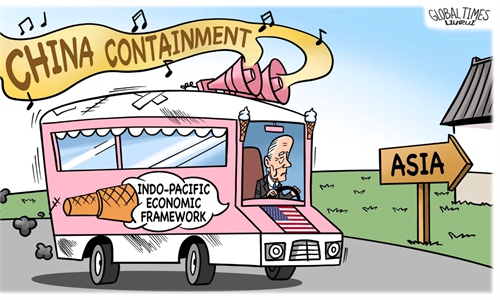
Chinese State Councilor and Foreign Minister Wang Yi (2nd R) co-hosts the second China-Pacific Island Countries Foreign Ministers' Meeting with Fijian Prime Minister and Foreign Minister Voreqe Bainimarama (1st R) in Suva, Fiji, May 30, 2022. Photo: Xinhua
On May 30, 2022 local time, State Councilor and Foreign Minister Wang Yi and Fijian Prime Minister and Foreign Minister Josaia Voreqe Bainimarama co-chaired the second China-Pacific Island Countries Foreign Ministers' Meeting in Suva. At a joint press availability after the meeting, Wang said that the success of the meeting can be summarized in a five-point consensus including deepening the two sides' comprehensive strategic partnership.However, Western media selectively ignored these fruits but focused on the joint document that was not finalized, saying China "falls short" on cooperation with Pacific island countries. Such reports only reflected the zero-sum mentality of some Western elites who see every diplomatic move of China through a geopolitical lens.
It is quite normal for cooperation documents between China and Pacific island countries to come up for more consultations. This is just a normal stage in bilateral cooperation. Many international multilateral documents require lengthy discussions before they are finally signed, Chen Hong, director of the Australian Studies Center at East China Normal University, told Global Times.
"The West spares no efforts to say that China 'fails' and 'falls short' in a bid to smear China's diplomacy, portraying a scenario that appears China's diplomacy doesn't work well," Chen said. But no matter how hard they hype China's "setback," they cannot disguise the fact of the US and Australia's diplomatic failure in the region.
Western media's coverage of Wang's trip has shown the West's zero-sum mentality to the fullest. The West believes that if China "wins," that means a loss of the West; but from China's perspective, whether cooperation can be a win-win result matters.
The West focuses on the "security pact," but in a distorted way. China's cooperation with Pacific island countries aims to boost local governance. But the West says it is about military; and this is nothing but a move to pave way for hyping the "China threat theory." The West wishes to pile more pressure on Pacific island countries this way and mislead them to doubt, even reject cooperation with China, so that they can exclude China in the region and realize their zero-sum goals.
Some observers were quoted by Western media as outlining China's so-called "global ambitions" and China's "embarrassment." Such analyses apparently misinterpret China's diplomacy for the sake of smearing. Wang emphasized that the cooperation between China and Pacific island countries aims to "make the world fairer, more harmonious and stable." The consultations for consensus on cooperation between China and local countries demonstrate China's full respect for Pacific island countries to achieve this goal.
"China is willing to listen to Pacific island countries and does not seek to impose anything on them. This is in sharp contrast to Australia's previous efforts to block cooperation between China and those nations," Chen noted. "Although Australia stresses respect for the decisions of regional nations, such 'respect' is entirely based on double standards."
"When Australia exerts its influence over these countries, it does not respect their ideas. Even the new foreign minister, on a visit to Fiji, openly said there would be 'consequences' for Pacific island countries which cooperate with China. This was a blatant threat," Chen said.
As Wang advised, when seeing cooperation between China and Pacific island countries, some people should not "be too anxious or nervous." Forcing Pacific island countries to make a choice with a zero-sum game mentality while ignoring their interests will only hurt those countries' interests, let alone respect them.
China has set an example of policing cooperation with the Solomon Islands and countries like the Philippines and Italy outside the region, Chen said, noting that actions speak louder than words. It is believed the development of cooperation between China and Pacific Island countries will dispel the doubts of all parties and let them witness the benefits of security cooperation with China for social stability.



